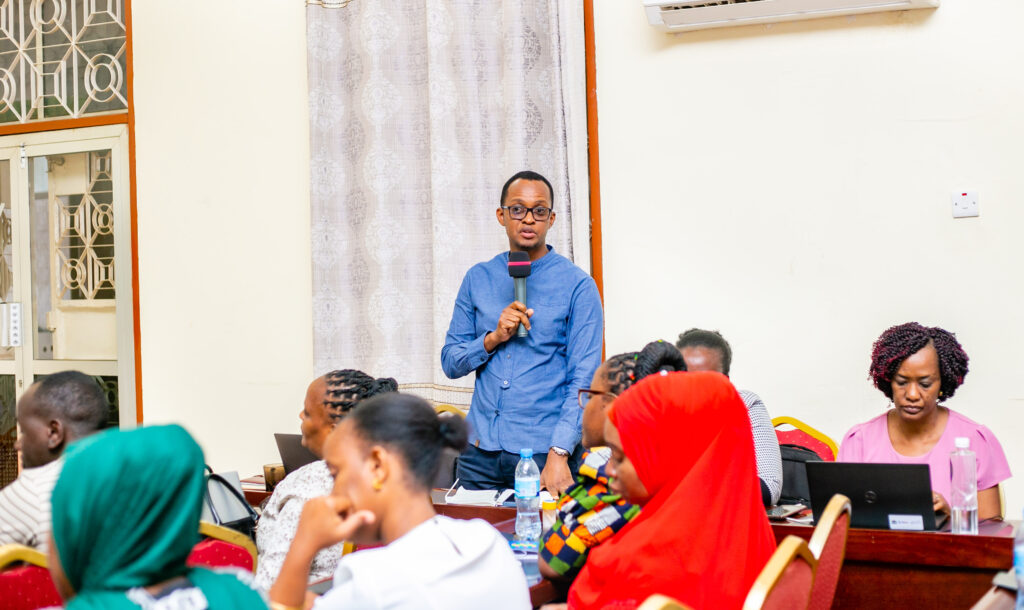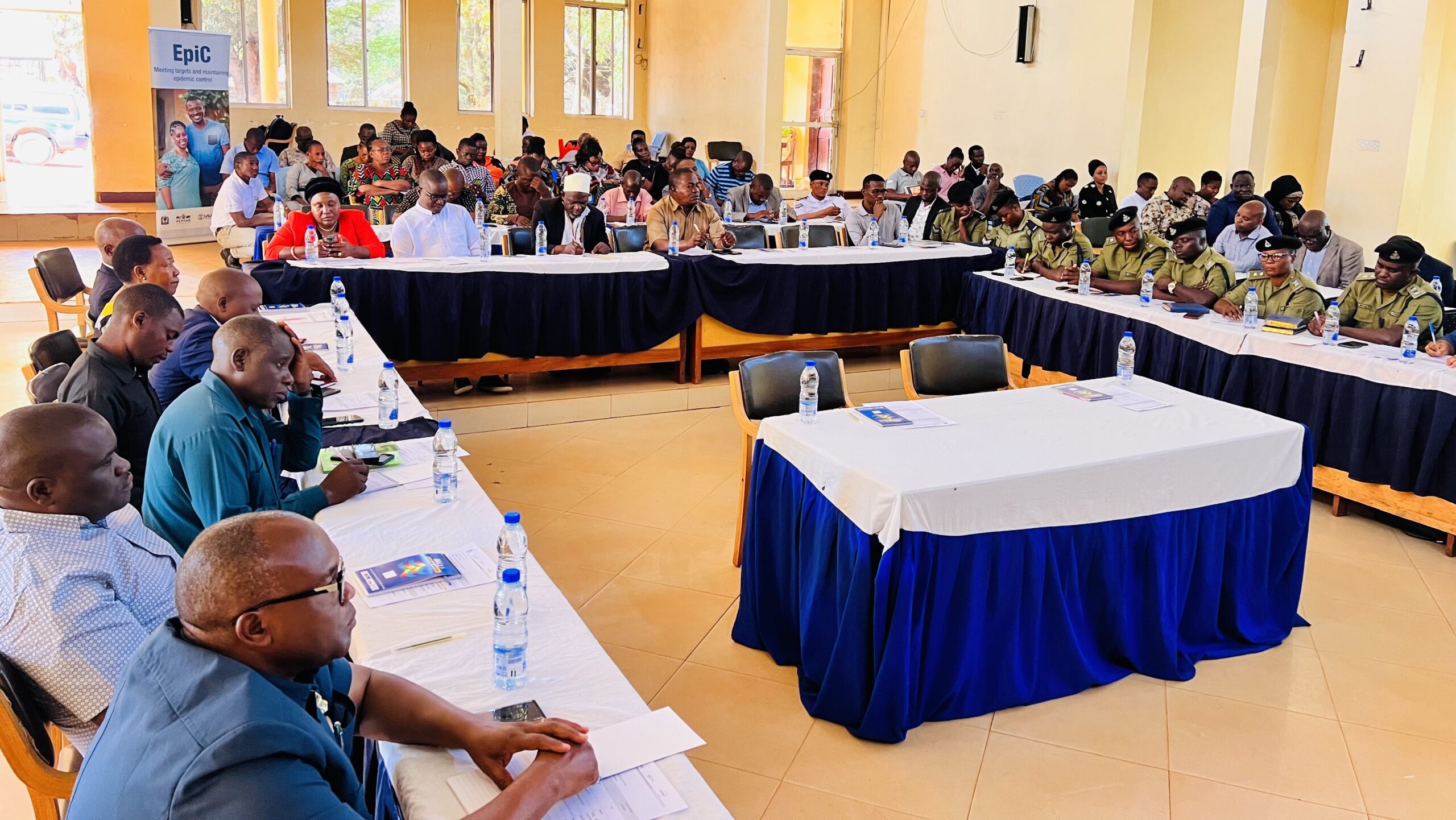Agness John, Senior Technical Officer, FHI 360, EpiC Tanzania
Samwel Daniel, Technical Officer, FHI 360, EpiC Tanzania
Aziz Itaka, Regional Manager, FHI 360, EpiC Tanzania
In Tanzania, key and vulnerable populations — including people who inject drugs, men who have sex with men, and female sex workers — continue to experience high HIV prevalence rates, propelled by gender-based violence, stigma, and criminalization.
Those in key and vulnerable populations experience harassment, exploitation, violence, and other human rights abuses from family, community members, and service providers, including denial of services by law enforcement agencies and health providers. These experiences lead individuals in key and vulnerable populations to live in fear of seeking HIV and other health services, participating in income-generating activities, and even seeking legal and security services when experiencing acts of violence.
Violence is one of the structural barriers that keep key and vulnerable populations at risk of both human rights violation, injustice, and exposure to the risk of HIV and STI infection. Among the acts of violence, they are facing are rape, forced sex, and physical and psychological torture. This lowers their ability to bargain for safe sex and health-seeking behavior, while in the long run leads to mental illness.
Dr. Ukio Kusirye, Morogoro Regional Medical Officer

In collaboration with regional and local government authorities, the Meeting Targets and Maintaining Epidemic Control (EpiC) project convened meetings to address violence in the project’s regions of implementation. These meetings aimed to reactivate dormant multisectoral AIDS committees and integrate violence prevention and response (VPR) initiatives into Village, Ward, and Council Multisectoral AIDS Committee (V/W/CMAC) plans. Meeting participants included regional and district-level officials in medicine, law enforcement, social welfare, community development, mental health, and HIV/AIDS.

Participants engaged in a comprehensive dialogue on the links between violence and HIV and the urgent need to address violence as a component of effective HIV prevention efforts. Participants discussed how V/W/CMAC could address community-level factors that perpetuate violence, including cultural norms, inadequate violence response services, difficulties in reporting incidents, unfriendliness of law enforcement officers, and gaps in handling cases involving key and vulnerable populations sensitively.
Inactiveness of the Village, Ward, and Council Multisectoral AIDS Committees serves as a significant barrier to preventing violence among key and vulnerable populations — something that propels HIV transmission — since it reduces community engagement and participation. Community-driven initiatives, such as awareness campaigns and support networks, are less likely to occur, leading to a weakened community response against violence. To reach zero HIV by 2030, active community involvement is essential for creating a supportive environment and challenging harmful norms and behaviors that contribute to HIV cases.
Charles Kigahe, Lindi Regional Community Development Officer
To ensure minimal and or zero violence cases, multisectoral AIDS committee members agreed to revitalize the dormant committees to ensure that HIV services at the community level are delivered with high quality, effectiveness, and efficiency. They developed actionable strategies, including community education and awareness campaigns, sensitization training for law enforcement officers, strengthening support services for victims, creating safe spaces, and involving local leaders in advocacy efforts. Collaboration among different stakeholders was emphasized to ensure a holistic approach.
Community development and social welfare officers should be active in directing and encouraging violence victims to report the cases and follow up until the action is taken. We have a lot of violence cases reported but very few end with actions due to the family’s discussion and decision to drop the case, distance from the household to the police station, and lack of transport money. As leaders, we should be active in educating the community on the importance of finalizing these cases and violence eradication.
Bahati Sembera, Assistant Superintendent of Police, Mtwara Region Head of Police Gender Desk

Mbinga Town CMAC in Ruvuma region immediately took this on by facilitating a seminar with 130 people most at risk of acquiring HIV, including women working at bars, pubs, guest houses, and lodges. The session focused on promoting an understanding of human rights and making them aware of existing violence response services and how to access them. This seminar was championed by the police Officer Commanding District (OCD) of Mbinga TC.
At-risk females always distance themselves from the police. This makes it even harder for them to report GBV-experienced or any criminal activity planned by their customers. We came up with a friendly police approach so that we can reach our goals of protecting the community and making it a safe place while helping these women to understand their rights and ensure that they are adhered to and respected.
Majaliwa Mbogela, OCD Mbinga TC
Other V/W/CMAC are also working to implement their strategies. The EpiC team will continue providing technical support and engage in these meetings to continue promoting an enabling environment for violence prevention and response.
Featured photo: Participants attending VPR meetings in the Ruvuma region. (Photo credit: Jacqueline Ruhundwa, EpiC Tanzania, September 2023).

